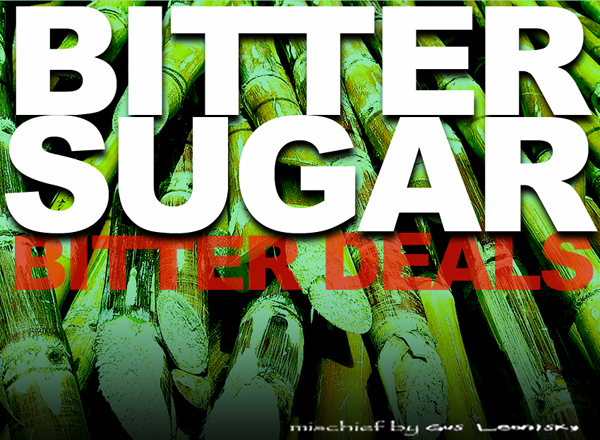Search
Recent comments
- see also:
6 hours 10 min ago - calculus....
6 hours 24 min ago - UNAC/UHCP...
11 hours 5 min ago - crafty lingo....
12 hours 29 min ago - off food....
12 hours 38 min ago - lies of empire...
13 hours 37 min ago - no peace....
14 hours 45 min ago - berlinade....
15 hours 10 min ago - difficult...
16 hours 46 min ago - no nukes...
16 hours 54 min ago
Democracy Links
Member's Off-site Blogs
food fight...

And the big island of Hawaii County Council gave preliminary approval to a bill that prohibits open air cultivation, propagation, development or testing of genetically engineered crops or plants. The bill, which still needs further confirmation to become law, would also prohibit biotech companies from operating on the Big Island.
But perhaps the biggest bombshell of all is now unfolding in Washington state. The mail-in ballot state's voters are already weighing in on Initiative 522, which would mandate the labeling of genetically modified organisms (GMOs). Knowing full well that 93 percent of the American public supports GMO labeling, and that if one state passes it, many others are likely to follow, entrenched agribusiness interests are pulling out all the stops to try to squelch yet another state labeling effort.
This time, however, things aren't going quite as planned. On Wednesday, Washington state Attorney General Bob Feguson filed a lawsuit against the Grocery Manufacturers Association (GMA). The GMA, a lobby for the junk food industry, has been by far the largest donor to efforts to defeat the labeling initiative. The lawsuit alleges that the GMA illegally collected and spent more than $7 million while shielding the identity of its contributors.
This story first appeared on the Huffington Post.
The source of the money has now been exposed, and it turns out to be Pepsico, Coca-Cola, NestleUSA, General Mills and a few other junk food companies. The lawsuit reveals that GMA leadership held a series of secret meetings to plot how to perpetrate a money laundering scheme and illegally hide member donations from Washington state voters, in direct violation of campaign disclosure laws.
http://www.alternet.org/food/monsantos-very-bad-week-3-big-blows-gmo-food
- By Gus Leonisky at 22 Oct 2013 - 8:13am
- Gus Leonisky's blog
- Login or register to post comments
bitter sweet...
KOH KONG, Cambodia — Song Kong wouldn’t think of buying a Coke or Pepsi at his local village store in rural Cambodia. With an income of about $1.50 per day, he needs to save every penny to keep his five children from starving.
Despite Kong’s thriftiness, Oxfam contends that the soft drink powerhouses are already taking food from his children’s mouths.
In a report released earlier this month, the organization alleges that a plantation whose sugar ends up in the companies’ products has robbed 457 families of their farmland — their primary source of income.
Coca-Cola and Pepsi companies have promised to look into the allegations. After Oxfam released the report, both companies issued statements acknowledging the problem of land grabs.
read more: http://www.globalpost.com/dispatch/news/regions/asia-pacific/cambodia/131007/blood-sugar-oxfam-accuses-coke-pepsi-land-grab
oil grab and spill...
Amnesty International accuses Shell of false claims about its environmental impact in the Niger delta, saying that the oil company cannot be trusted and that there are "serious discrepancies" between the evidence of pollution and what Shell claims.
"[Its] claims about its environmental impact in the Niger delta are frequently untrue. Shell has claimed that the oil spill investigations are sound when they are not, that sites are cleaned up when they are not, and that the company is transparent when, in reality, it maintains very tight control over every piece of information – deciding what to disclose and what to withhold," a report into oil spills in the Nigerian region says. "Shell is being disingenuous about the devastation caused by its Niger delta operations. Shell's claims about the oil spills cannot be trusted."
According to official figures, there are several hundred oil spills a year in the delta, many of which involve Shell pipelines. "Instead of being in the dock when there is an oil spill in Nigeria, Shell gets to act as judge and jury," says the Nobel prize-winning human rights organisation. "It is the communities that suffer a life sentence, with their land and livelihoods destroyed by the pollution. The Niger delta is the only place in the world where companies brazenly admit to massive oil pollution from their operations and claim it is not their fault. Almost anywhere else they would be challenged on why they have done so little to prevent it."
http://www.theguardian.com/global-development/2013/nov/07/shell-oil-niger-delta-pollution-amnesty